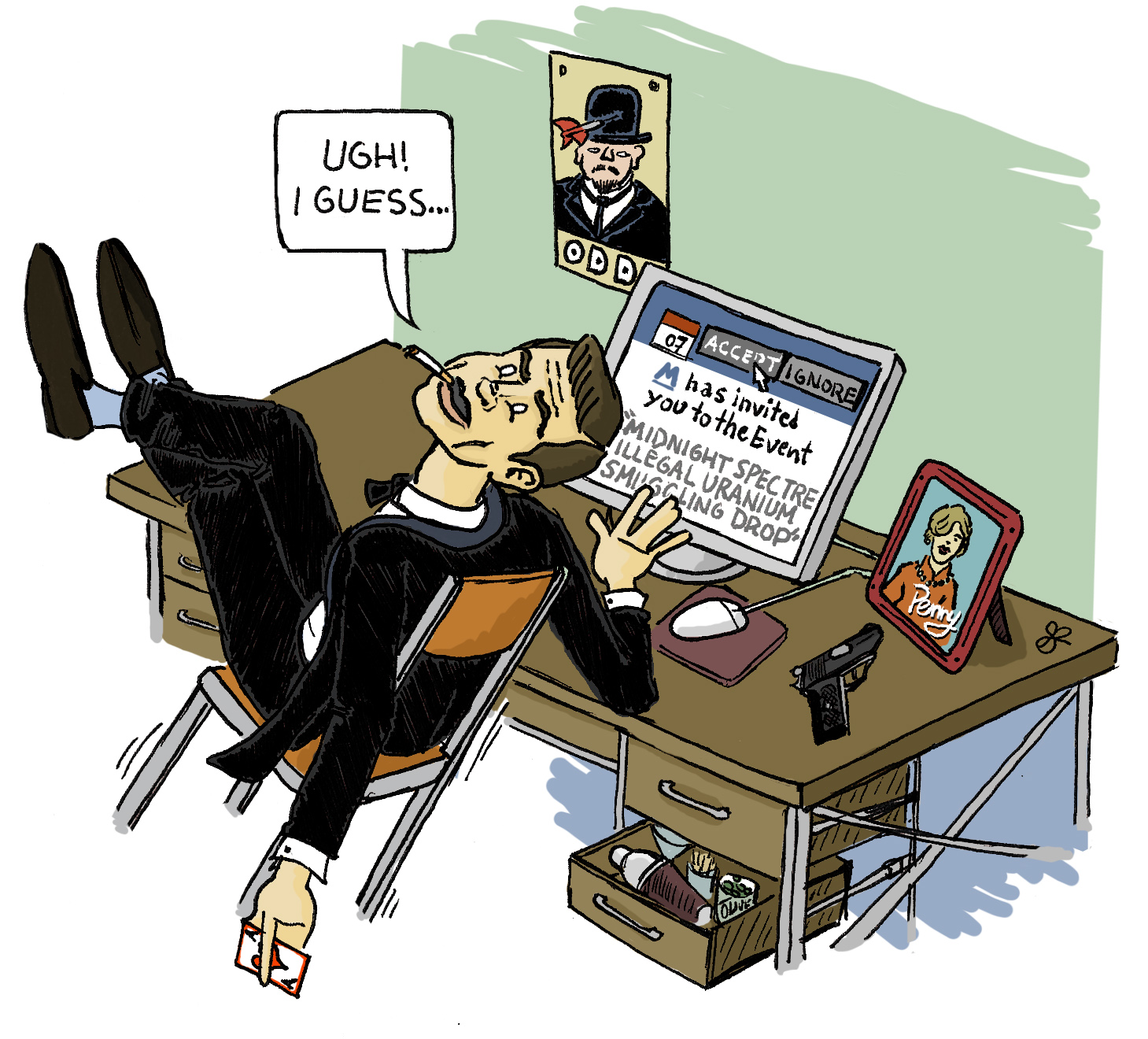 I logged into Facebook a few days ago and saw that my friend had sent me a Facebook wedding invitation.
I logged into Facebook a few days ago and saw that my friend had sent me a Facebook wedding invitation.Yes, my friend invited me to her wedding on Facebook.
I was speechless. Facebook is great for many reasons: staying in touch with friends, finding old classmates, sharing pictures, and organizing events such as a girls’ night out. But inviting people to a wedding?
Call me old-fashioned, but whatever happened to snail-mail invitations? Whatever happened to cards with beautiful calligraphic writing? I cannot even imagine what wedding invitation keepsake parents would show their future children. A printed out Facebook event page?
My friend’s wedding invitation seemed like another party invitation, with invited guests leaving comments such as, “Sorry, I already have plans, but have a great time!” or “Count me in!” The wedding has not yet occurred and I already feel that the importance of the event has been devalued.
I consulted the Emily Post Institute’s website to read what authorities in the field of etiquette had to say. According to Anna Post, an “invitation reflects the level of formality of the party you’re throwing.” Seeing as a wedding is a formal event then surely it is never acceptable to use Facebook invitations.
I asked students what they thought. Most students used one word to describe a Facebook invitation: tacky. A few people said it was rude.
I also contacted my cousin, Laura Howat, who got married a few years ago. In keeping with tradition, she sent out beautiful card invitations. What did she think of Facebook invitations?
“I like to think that if your grandmother can’t access the invitation, it shouldn’t be done!” She explained that not everyone has a Facebook account, or even a computer.
If my friend absolutely wanted to send the invitations electronically, she could have sent a personal email to each guest. There are websites in which you design your own invitation cards. The cards will be sent electronically, thus saving money on stamps. The electronic cards would be more personal and formal than a Facebook invitation.
Not everyone is against Facebook invitations. My sister, Jessica Heales, argued that weddings are very expensive and “the amount of money you save by not sending invitations can be used to pay for something else at the wedding.” She added that it takes a lot of time to choose a design, write the message, and address each envelope.
However, a wedding is a very special moment in one’s life. It does take time and money, but it shows the guests that you are putting in the effort by personalizing the cards.
Another problem with Facebook events is that with online RSVP, people can decide to attend, not attend, maybe attend or simply not answer. This makes it problematic for wedding organizers. The organizers need to know ahead of time how many people are attending to ensure enough chairs are rented. If someone says they are “maybe” attending, the organizers are left scratching their heads.
Rand Richards Cooper, a New York Times Op-ed contributor, stated that technology can sometimes make life more difficult. In his article, “It’s my Party, and You Have to Answer,” Cooper wrote: “In requesting people to anchor a plan in the distant future of a month hence, you are demanding a kind of navigation that Americans increasingly do not practice. We prefer to remain flexy, solidifying our plans incrementally as the date approaches. Cellphones in hand, we microadjust our schedules as they unfold around us. We’re like the air traffic controllers of our own lives.”
A formal invitation would encourage people to respond with yes or no, rather than wait until the last minute to attend or not. A generic Facebook invitation is not taken as seriously and consequently, the guests may not provide a definite answer.
In the mood to party this Friday night? Use Facebook and invite your friends. Getting married? Send a personal card to each guest. Even in our increasingly digital world, that personal touch is still very important.




